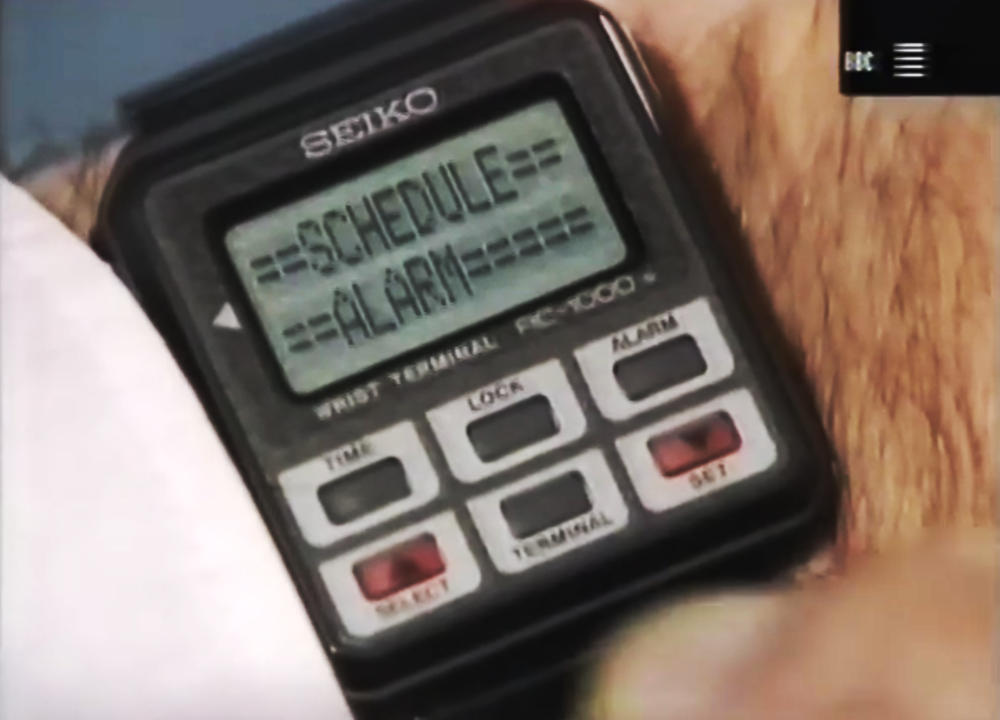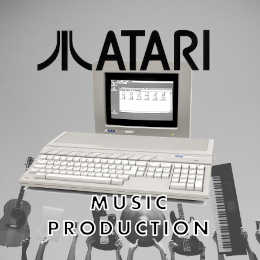Welcome to PCW'85 - Seiko RC-1000 computer watch
Updated 17 January 2024
Database TV Show (June 1985)
Dr Mike Thorne has been lurking for some considerable amount of time on the Oxford Computer Systems stand. These guys have put together a full implementation of the structured language Pascal on the C64 and BBC micro. Interestingly enough, some versions of Pascal require the installation of an additional processor for the BBC micro. Here is the release of, wait for it, Oxford Pascal. There are extensive extensions to implement the excellent C64 graphics and sound capabilities. The good doctor rattled off a range of extended functions, such as, dynamic specification of filenames, input of strings, HEX I/O, bit manipulation, machine language interface, and more. He was getting very excited with it all. There are plans for Oxford Pascal on the Atari ST, Commodore 128 and the Amstrad machine. The asking price is £45 on the C64.
Mike has enough time to give a demonstration of the Oxford Pascal compiler in this episode. I am shocked with the amount of airplay this is receiving. It is not all bad. I really like the Pascal language. Mike types in LIST to list the source code for the Pascal demo program. The listing looks similar to BASIC. It catches the careful eye that the source code listing has line numbers. The line numbers are four digits long, e.g. 1140. Pascal does not look as useable when you need to use line numbers. I'm sure that source code development is fine. Mike takes the very unusual step of attempting to compile a program. This is game. It is unusual for source code to be compiler-error free and compile quickly enough. The command to compile the software is r for a reason that is unclear to the viewer. Compilation of this demonstration code is around 10-11 seconds.
Mind you, it is the typical home computer setup that I am admiring here. There is the typical Commodore 64 breadbin, TV monitor, and the Commodore floppy drive neatly placed on top. There must be a significant interaction of magnetic fields between the television and the floppy drive. Not to mention, there is a risk of knocking the disk drive off the monitor in a busy computer stall.

Database finally introduces its Visicode competition winners. And I'll let you in on a secret. The secret code is Stonehenge to you. The competition wasn't that easy. And in the words of the presenter, it's really nice to see a female in the pack. Like a cardboard cutout, the female responds that my husband made me do it.

Now let's give Tony the last word. And the last word in technology and innovation is Japan Inc. Specifically the wonderful Seiko RC-1000. The RC-1000 is basically a quartz multi-function computer terminal that you wear on your wrist. Now let a think, what is the date that I am least likely to remember, yes, my anniversary. Great. At least the watch has an alarm to remind me when I need to appear at the divorce courts.

Data transfers are made with the RS-232 universal interface through to the wrist terminal. ANd what have you got when you have done that? Well it is true that the RS-1000 is a glamorous executive wrist toy. It is best for travelling sales people, apparently. There is the important alarm function to remind you when you need to watch Database and apparently it can also tell the time.
And now, let's use the RC-1000 terminal to run the credits...
Stop the Press… Seiko vintage computer watches
Seiko's vintage computer watches are iconic pieces of wearable tech history,
often referred to as the pioneers of smartwatches
in the early digital age.
They combined cutting-edge technology with a sleek wristwatch form,
targeting tech enthusiasts and professionals during the 1980s.
Here’s a brief overview of some notable models:
- Seiko UC-2000 (1984)
- Seiko RC Series (RC-1000, RC-4000, RC-4500)
- Seiko TV Watch (1982)
- Seiko Data-2000 (1983)
- Seiko MessageWatch (1990s)




